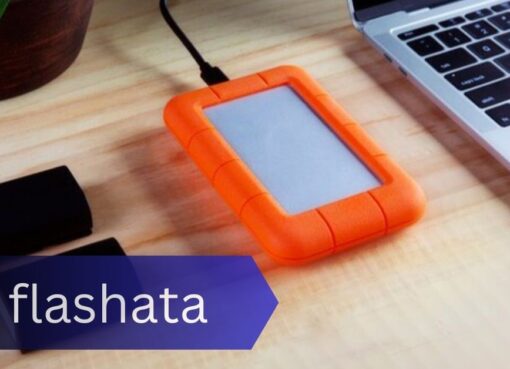thejavasea.me leaks aio-tlp – What is it!

I recently discovered that my personal information was part of the Thejavasea.me leaks aio-tlp. It was shocking to see my login details exposed, and I had to immediately change all my passwords.
Thejavasea.me leaks aio-tlp involves a big security breach where personal information like passwords and emails were stolen from a website. If your data is part of this leak, it’s important to change your passwords and watch out for any suspicious activity.
Explore thejavasea.me leaks aio-tlp and you’ll find a major data breach that has exposed sensitive personal information.
What is Thejavasea.me leaks aio-tlp!
This site was hacked, and a lot of personal data like passwords and private messages from its users got leaked online.
The term aio-tlp refers to a system used to categorize how sensitive this leaked data is, with “aio” meaning “all-in-one” and “tlp” standing for “Traffic Light Protocol,” which indicates the level of confidentiality of the information.
In simple terms, it means that a lot of important and private data from the site was made public, and it’s crucial to understand how to protect yourself from such leaks.
What kind of data was exposed in the leaks!
This included personal information such as names, email addresses, and phone numbers, which are crucial for identity verification. Financial details such as credit card numbers and bank account information were also exposed, posing a risk of financial fraud.
Private messages and other personal documents might have been leaked as well, further increasing the potential for misuse. The extent of this exposure makes it a significant concern for anyone whose information was involved, as it opens up numerous avenues for identity theft, financial loss, and privacy violations.
How Did the Leak Happen and Who is Affected!
The leak occurred because hackers exploited weaknesses in the security system of Thejavasea.me, allowing them to access and steal sensitive data from the website’s database.
This breach affected anyone who had used the site and stored personal information there, including login details, email addresses, and possibly financial information. As a result, all users who had their data exposed are at risk of identity theft, financial loss, and unauthorized access to their online accounts.
What does “aio-tlp” refer to in the context of the leak!
In the context of the Thejavasea.me leaks, “aio-tlp” stands for “all-in-one threads, tools, and platforms.” It refers to a collection of resources that are often used within tech communities, particularly those focused on programming, cybersecurity, or hacking.
These tools can be designed for a range of activities, including legitimate purposes like software development, as well as illegal activities such as hacking or data theft.
In this case, the breach exposed sensitive user information stored on the Thejavasea.me website, including data related to these “all-in-one” tools. These tools can be powerful, and their misuse, combined with the leaked data, poses a threat to users’ privacy and online security.
What are the consequences of the breach!
Identity Theft
- Hackers can use stolen personal information, such as names, addresses, or social security numbers, to impersonate users and commit identity theft.
Financial Loss
- If sensitive information like credit card details or bank account information was exposed, victims may suffer from unauthorized transactions, leading to financial losses.
Unauthorized Account Access
- Login credentials exposed in the breach allow cybercriminals to log into your personal accounts (email, social media, or financial platforms) without your permission.
- Once inside, they could change passwords, lock you out, or steal further information.
Reputational Damage
- If private messages or confidential data (e.g., work-related information) are exposed, it can damage the reputation of individuals or businesses involved.
- This damage can be especially harmful in professional settings or industries where trust is key.
Phishing and Scams
- Exposed email addresses and contact details may be used by hackers for phishing attacks. This involves sending fraudulent emails to trick victims into giving away even more sensitive information.
- Scammers might pose as legitimate businesses or services to lure users into clicking malicious links.
Loss of Trust in the Platform
- Users of thejavasea.me may lose faith in the site’s ability to protect their personal data, leading to a drop in user activity and credibility for the platform.
- It can also result in legal actions or penalties against the platform.
Spread of Leaked Data
- Once sensitive data is leaked, it may be shared on the dark web, making it available to other cybercriminals.
- This could result in long-term exploitation of your information, as it can be reused for future attacks or sold to malicious actors.
Increased Risk of Other Cybercrimes
- Leaked data can be used for more than just financial theft; it may also lead to cyberstalking, harassment, or other digital crimes.
- Personal photos, addresses, or sensitive communications could be weaponized against victims.
Legal and Privacy Violations
- The platform could face legal actions for not securing user data, especially under privacy laws like GDPR.
- Affected users might also take legal action for the breach of their privacy.
Emotional and Psychological Impact
- Victims of data breaches often experience stress, anxiety, or fear of further attacks.
- The uncertainty about how the data might be used in the future can lead to long-term emotional distress.
How to Check if Your Data Was Leaked and What to Do Next!
To see if your data was part of the leak, you can use websites like “Have I Been Pwned.” By entering your email or username, you can check if it was exposed in any known data breaches. If your data was compromised, change the passwords for affected accounts right away, making sure each one is different.
Also, consider enabling two-factor authentication (2FA) for added security. Keep an eye on your bank accounts for any suspicious transactions and monitor your email for unusual activity to protect against identity theft or fraud.
How can I protect myself from future breaches!
To protect yourself from future data breaches, there are several steps you can take to safeguard your information. First, always use strong and unique passwords for each of your online accounts. Avoid reusing the same password across multiple platforms, as this can make you vulnerable if one site gets hacked.
A password manager can help you create and store complex passwords safely. Secondly, enable two-factor authentication (2FA) on your accounts, which adds an extra layer of security by requiring not only your password but also a second verification step, like a code sent to your phone.
Regularly update your software and devices to fix any security vulnerabilities that hackers might exploit. It’s also wise to monitor your accounts for suspicious activity, such as unauthorized logins or unusual transactions, and act quickly if you notice anything amiss.
What legal actions can be against platforms that experience data breaches!
When a platform experiences a data breach, there are several legal actions that can be taken against it. Depending on where the platform is based, it might be held accountable under specific data protection laws. If they fail to do so, they can face large fines and lawsuits.
In the U.S., various state laws, such as the California Consumer Privacy Act (CCPA), also provide protection and impose penalties on companies that don’t properly safeguard user data. Affected users may be able to sue the platform for damages if their personal information was exposed, which could lead to settlements or compensation.
In serious cases, governments may also investigate and enforce additional penalties, making sure that the platform improves its security to prevent future breaches.
What can Thejavasea.me do to prevent future leaks!
To prevent future data breaches, Thejavasea.me can take several steps to improve its security. First, the site should perform regular security audits to identify weaknesses and fix them before hackers can exploit them. This helps to ensure that the system remains up-to-date with the latest security practices.
Another important measure is to use stronger encryption techniques for protecting sensitive user information, such as passwords and personal data. Encryption ensures that even if a hacker gains access to the data, they cannot easily read or misuse it.
By taking these steps, Thejavasea.me can significantly reduce the risk of future leaks and maintain user trust.
How Encryption Protects Your Data & Risk of Phishing from Leaks!
Encryption is like a secret code for your information. When data is encrypted, it gets turned into a jumbled mess that only someone with the right key can unscramble. So even if hackers get hold of this jumbled data, they can’t read it or use it without the key. This helps keep your sensitive information safe.
When data is leaked, it can be used in phishing attacks. Phishing is when attackers use stolen information, like your email address, to trick you into giving away more personal details.
They might send fake emails that look real, asking for your passwords or other sensitive info. This can cause more problems, so it’s important to be careful with your online details.
Companies and Cybersecurity Professionals Learn from Thejavasea.me Leaks!
From the Thejavasea.me leaks, companies should learn the importance of maintaining strong cybersecurity measures and regularly auditing their systems for vulnerabilities. This breach highlights that even platforms with robust security can be compromised if weaknesses are not promptly addressed.
It underscores the need for strong encryption, regular updates, and comprehensive security protocols to protect user data. In the broader cybersecurity landscape, this incident stresses that data breaches are a serious threat that can have wide-reaching impacts, including identity theft and financial fraud.
It serves as a reminder for all organizations to be proactive in their security efforts to prevent such costly and damaging breaches.
Frequently Ask Questions:
1. What specifically is exposed in the Thejavasea.me leaks aio-tlp?
The leak includes a broad spectrum of data such as personal identifiable information (PII), financial information, login credentials, and proprietary business data.
2. How did Thejavasea.me become a target for this breach?
Thejavasea.me was targeted due to its large user base and the sensitive nature of the data it stored, making it a valuable asset for cybercriminals.
3. What is the significance of “aio-tlp” in the context of these leaks?
“Aio-tlp” refers to the comprehensive nature of the leaked data and its classification under the Traffic Light Protocol (TLP), where “Purple” indicates high sensitivity.
4. Were there any specific vulnerabilities in Thejavasea.me that led to this breach?
Yes, the breach exploited vulnerabilities such as weak encryption, inadequate security protocols, and possibly outdated software.
5. What immediate steps should affected users take after the leak?
Affected users should immediately change their passwords, monitor their accounts for suspicious activity, and consider placing a fraud alert on their credit reports.
Conclusion:
Thejavasea.me leaks show how dangerous data breaches can be. Even with encryption, hackers can still access leaked information. They can use this info to trick people into giving more personal details.
Read more:



Leave a Comment